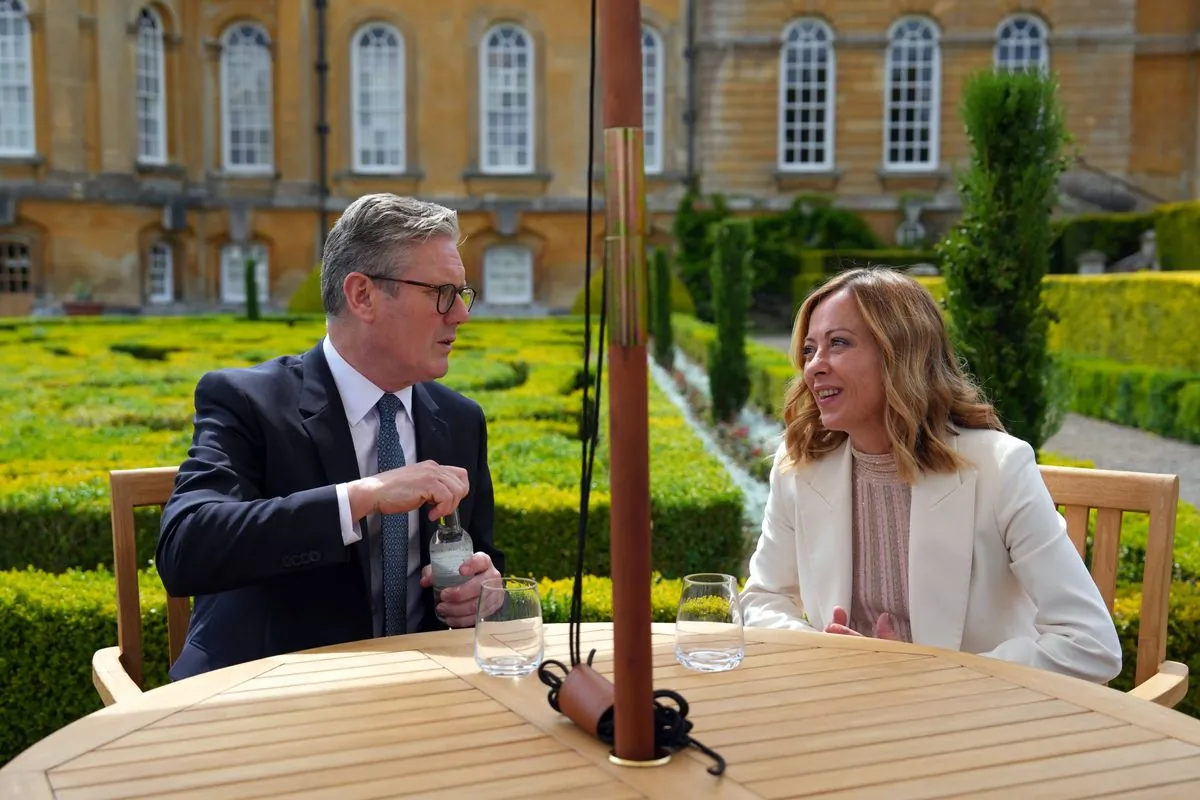Starmer Eyes Albania for Migrant Processing, Inspired by Italian Model
Labour leader Keir Starmer expresses interest in Albania-based migrant processing, following Italy's successful model. He plans to discuss migration strategies with Italian PM Giorgia Meloni in Rome.

Keir Starmer, the leader of the UK's Labour Party, has expressed interest in exploring Albania as a potential location for migrant processing, drawing inspiration from Italy's recent approach. This development marks a significant shift in Labour's stance on migration policy.
Italy, under the leadership of Prime Minister Giorgia Meloni, established an agreement with Albania in 2023 to create two migrant processing centers in the Balkan nation. These facilities are designed to handle the claims of 36,000 migrants annually, with the first center scheduled to open in autumn 2024.

Starmer's openness to this model comes despite Labour's previous criticism of the Conservative government's Rwanda scheme. The Italian approach differs in that migrants whose asylum claims are rejected are returned to their home countries, while those accepted are admitted into Italy.
"Let's see. It's in early days, I'm interested in how that works, I think everybody else is."
The Labour leader is set to meet with Meloni in Rome on September 15, 2024, as part of his European tour to discuss migration issues and reset relations with the EU. This visit follows recent meetings with German Chancellor Olaf Scholz and French President Emmanuel Macron.
Italy's success in reducing migrant numbers has been notable. Over the past year, illegal migrant arrivals in Italy have decreased from 118,000 to 44,500, a 62% reduction. This achievement is largely attributed to financial agreements with the Tunisian and Libyan governments, resulting in an 80% drop in crossings from Tunisia and a 27% decrease from Libya.
The UK continues to face challenges with small boat crossings, with over 23,000 migrants arriving via this route so far in 2024. Starmer has previously pledged £84 million in foreign aid to address the root causes of migration, including conflict, climate change, and extreme poverty.
Albania, the country at the center of this potential new approach, has a rich history and unique position in Europe. As a NATO member since 2009 and an EU candidate, Albania has been transitioning from a communist past to a market-based economy. With a population of 2.8 million and a 476 km coastline along the Adriatic and Ionian seas, the country offers a strategic location for such a processing center.
As discussions progress, the focus remains on finding effective and humane solutions to the ongoing migration challenges faced by European nations. The success of any such scheme will likely depend on careful implementation and cooperation between countries involved.


































